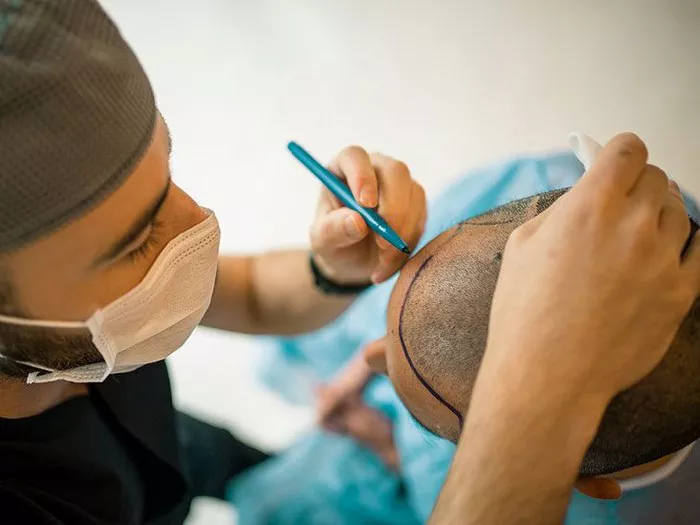The decision to undergo a hair transplant is a deeply personal one, and timing plays a pivotal role in achieving optimal results. In this insightful guide, we explore the considerations and factors associated with determining the best age for a hair transplant, ensuring individuals make informed choices that align with their unique circumstances and aspirations.
1. The Influence of Genetics: Understanding Predisposition
Genetics significantly impact hair loss, and individuals with a family history of baldness may notice signs in their late teens to early twenties. Recognizing the genetic predisposition to hair loss is crucial, as it sets the stage for informed decisions about when to consider a hair transplant.
2. Progressive Nature of Hair Loss: Waiting for Stabilization
Hair loss tends to be progressive, meaning it may continue over time. While some may experience early signs, waiting until the pattern stabilizes is often recommended. Opting for a hair transplant when the loss has stabilized enhances the accuracy of the procedure and ensures longer-lasting results.
3. Age Considerations: Balancing Youth and Maturity
The best age for a hair transplant often falls between the late twenties and early fifties. This age range strikes a balance, allowing individuals to address hair loss concerns while considering factors like the stability of the pattern, overall health, and realistic expectations.
4. Emotional Preparedness: Addressing Psychological Impact
Beyond the physical aspect, emotional readiness is a crucial consideration. Hair loss can have a significant impact on self-esteem, and choosing the right age involves assessing one’s emotional preparedness to undergo a transformative procedure and embrace the subsequent changes.
5. Age-Related Hair Loss Patterns: Tailoring Solutions
Different age groups may experience distinct patterns of hair loss.
Younger Individuals: Hairline design is crucial for younger patients to create a natural-looking result. FUE (Follicular Unit Extraction) is often preferred for its precision.
Middle-Aged Individuals: Addressing overall thinning may be a focus, and a combination of FUE and FUT (Follicular Unit Transplantation) techniques may be employed.
Older Individuals: Graft placement and coverage are key considerations, and a personalized approach is vital to achieve optimal density.
6. Medical Evaluation: Assessing Suitability
Undergoing a thorough medical evaluation is essential to ensure suitability for a hair transplant. Health conditions, medications, and the presence of underlying issues affecting hair loss are factors that a skilled surgeon will assess before recommending the procedure.
7. Future Hair Loss: Planning for the Long Term
Considering future hair loss patterns is crucial in the decision-making process. Surgeons may recommend conservative strategies for younger individuals to account for potential future loss and ensure the longevity of the results.
8. Post-Transplant Maintenance: Commitment to Care
Regardless of age, commitment to post-transplant care is vital for maintaining results. Following the surgeon’s recommendations, using prescribed medications, and adopting a healthy lifestyle contribute to the success and longevity of the transplant.
Conclusion:
In conclusion, determining the best age for a hair transplant is a nuanced decision that involves a blend of genetic factors, emotional readiness, and individualized considerations. The late twenties to early fifties is a common age range for many, but the decision ultimately rests on the unique circumstances of each individual.
Addressing hair loss is not just a physical transformation but an emotional and psychological journey. Consulting with a skilled and experienced surgeon, undergoing a thorough evaluation, and understanding the personalized aspects of the procedure ensure that individuals embark on a path to renewed confidence at the right age for them. The quest for timeless confidence is a personal journey, and a well-timed hair transplant can be a transformative step towards achieving it.
Does Hair Transplant Stop Future Hair Loss

